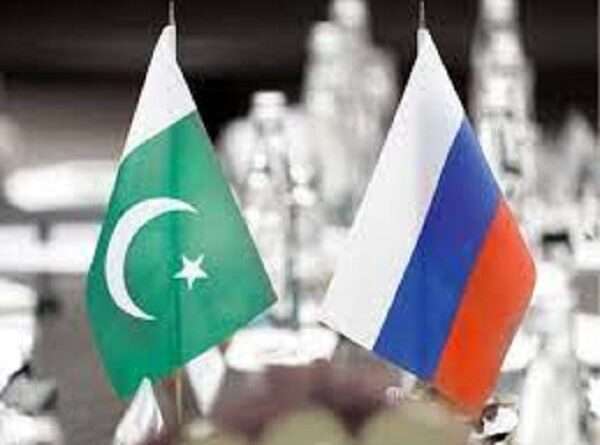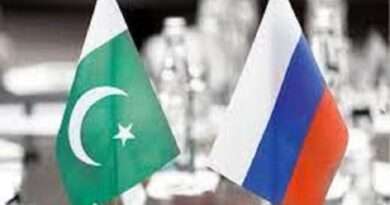Pakistan and Russia Explore Major Energy Deals
|
Getting your Trinity Audio player ready...
|
Pakistan and Russia have entered a significant phase of collaboration with the signing of a protocol to initiate large-scale energy projects and enhance their trade relations in oil and gas. This agreement was formalized during the ninth meeting of the Pakistan-Russia Inter-Governmental Commission on Trade, Economic, Scientific, and Technical Cooperation. The protocol aims to foster mutual cooperation in various energy sectors, including natural gas, oil exploration, and offshore drilling, which could serve as a strategic initiative for both countries.
Key Areas of Collaboration: Energy, Oil, and Gas Initiatives
Pakistan Stream Gas Pipeline (PSGP) Project
A primary focus of the energy collaboration between the two countries is the Pakistan Stream Gas Pipeline (PSGP) project. This initiative holds immense potential to reshape Pakistan’s gas infrastructure, contributing to the sustainable and economically viable supply of natural gas. The agreement invites Russian investment in the PSGP project, which is seen as a critical part of Pakistan’s broader infrastructure program.
Both nations are committed to ensuring that the PSGP project aligns with Pakistan’s long-term goal of addressing its growing energy needs. By inviting Russia to invest, the project promises not only to boost gas supply but also to improve Pakistan’s overall energy security. According to both parties, the PSGP is expected to enhance the transportation of natural gas from port areas to the country’s interior regions, ensuring consistent and affordable access to energy.
Joint Exploration Activities in Oil and Gas
Another key component of this protocol is the joint exploration of oil and gas reserves. Pakistan has long struggled with securing sufficient energy resources, and this cooperation with Russia could open new doors for tapping into unexplored oil and gas fields. Both countries are expected to conduct joint exploration activities with notable Pakistani oil and gas companies such as Oil and Gas Development Company (OGDC), Pakistan Petroleum Limited (PPL), and Mari Petroleum.
As part of these efforts, Gazprom Neft, a subsidiary of Russian energy giant Gazprom, has expressed its interest in cooperating with Pakistani companies. The aim is to establish integrated services that would allow Russian expertise in drilling and production to complement Pakistan’s oil and gas reserves.
Supply of Oil and LNG
The protocol also covers the supply of oil and liquefied natural gas (LNG). Russia has become a crucial supplier of energy resources to Pakistan, and the recent agreement reinforces this relationship. Both sides expressed satisfaction with the existing oil supply mechanisms, particularly the collaboration with the Russia-nominated Operational Services Centre, which has been responsible for oil and petroleum product deliveries.
Furthermore, discussions are in place regarding LNG supply opportunities from Russia’s Portovaya LNG plant. Both countries aim to establish long-term contracts for LNG, ensuring a steady and affordable energy supply for Pakistan, whose energy needs have been consistently growing. Russia’s Novatek also plans to deepen cooperation with Pakistani partners in the gas sector, focusing on integrated gas projects that could support Pakistan’s energy infrastructure.
Exploration of Offshore Oil and Gas Reserves
Potential in Offshore Exploration
An essential aspect of the Pakistan-Russia energy deal includes the exploration of offshore oil and gas reserves. Pakistan, which has significant potential for offshore energy extraction, seeks Russian expertise in this field. The collaboration aims to unlock offshore zones, which are yet to be fully explored. Russia has expressed interest in obtaining the technical details needed for a successful partnership in offshore exploration. Both countries are expected to hold further discussions and plan the groundwork for this venture in the coming months.
Onshore Exploration and Mature Fields
Alongside offshore exploration, Russia is interested in cooperation on onshore mature fields within Pakistan. Companies like Zarubezhneft will continue working with Pakistani oil and gas companies such as OGDC, Mari Petroleum, and PPL to develop these onshore fields, improving production levels and addressing the country’s energy deficit.
Collaboration in Geological and Mineral Resource Sectors
Cooperation with Rosgeo
An intriguing aspect of the partnership is Russia’s interest in Pakistan’s mineral resources. Rosgeo, a Russian geological exploration company, is keen on expanding its operations in Pakistan. The collaboration includes initiatives to enhance geological research and diversify Pakistan’s mineral resource base. Rosgeo plans to engage with several Pakistani entities, including OGDC, Mari Petroleum, and the Geological Survey of Pakistan, to facilitate the exchange of geological expertise and technologies.
Expanding Opportunities in the Coal Sector
In addition to oil and gas, Russia is looking to export coal and coal chemical products to Pakistan. This initiative will enable Pakistan to diversify its energy sources further while ensuring an additional supply chain for coal-based power generation. Both countries have agreed to discuss specific details, including potential customers and consumers, by the second quarter of 2025.
Hydroelectric Power Projects and Water Management
Hydropower Collaboration
In addition to oil, gas, and mineral exploration, both countries are also looking to cooperate in the hydropower sector. Russia’s RusHydro Group and Power Machines have identified several key projects in Pakistan, including the Diamer Bhasha Hydropower Project (4,500 MW), Dasu-2 Hydropower Project (2,160 MW), and Azad Pattan Hydropower Project (700 MW). The successful implementation of these projects will provide Pakistan with a significant boost in its renewable energy capacity.
Furthermore, the two sides have discussed the potential for Russian involvement in water management projects, focusing on improving the efficient use of water resources in Pakistan. By building comprehensive water and energy systems, both countries aim to address Pakistan’s growing water shortages while improving overall energy infrastructure.
Future Engagements and Long-Term Plans
Online Meetings and Further Agreements
Both countries plan to continue their cooperation in the energy sector through a series of online meetings and discussions. These meetings will pave the way for additional agreements, including memoranda of understanding (MoUs) for further collaboration. Notably, discussions will also focus on the continued supply of LNG and potential offshore exploration projects.
Pakistan’s Energy Demand and Infrastructure Study
Pakistan is currently conducting a detailed study on its energy demand and infrastructure requirements. The study will be completed by the third quarter of 2025, and its results will guide the country’s decisions regarding LNG purchases and energy infrastructure development. This study is expected to serve as the foundation for all future energy initiatives between Pakistan and Russia.
Conclusion: Strengthening Pakistan-Russia Energy Ties
The collaboration between Pakistan and Russia in the energy sector represents a significant step towards addressing Pakistan’s growing energy needs while fostering economic cooperation between the two nations. With mutual interest in gas infrastructure, oil and gas exploration, LNG supply, hydropower, and water management, both countries are committed to long-term, sustainable energy projects that will benefit both nations.
FAQs
1. What is the Pakistan Stream Gas Pipeline (PSGP) project?
The Pakistan Stream Gas Pipeline (PSGP) project is a major infrastructure initiative aimed at improving Pakistan’s gas supply. It involves Russian investment to help develop gas transportation from ports to interior regions, enhancing the country’s energy security.
2. What role does Gazprom Neft play in the collaboration?
Gazprom Neft, a subsidiary of Russia’s Gazprom, is involved in joint exploration and service operations with Pakistani oil and gas companies such as OGDC, PPL, and Mari Petroleum.
3. How will Russia contribute to Pakistan’s hydropower sector?
Russia’s RusHydro Group and Power Machines will participate in major hydropower projects in Pakistan, including the Diamer Bhasha and Dasu-2 projects, significantly boosting the country’s renewable energy generation.
4. What are the expected outcomes of the energy cooperation?
The energy cooperation between Pakistan and Russia is expected to result in better gas infrastructure, increased oil and LNG supply, the exploration of untapped oil and gas reserves, and the enhancement of Pakistan’s mineral resources.
5. When will the detailed energy study for Pakistan be completed?
Pakistan is set to complete a detailed study on its energy demand and supply by the third quarter of 2025. The findings will guide future decisions on LNG purchases and energy infrastructure development.
SEE ALSO
https://skipper.pk/2024/12/12/banking-sector-adr-rises-47-8-concerns/




